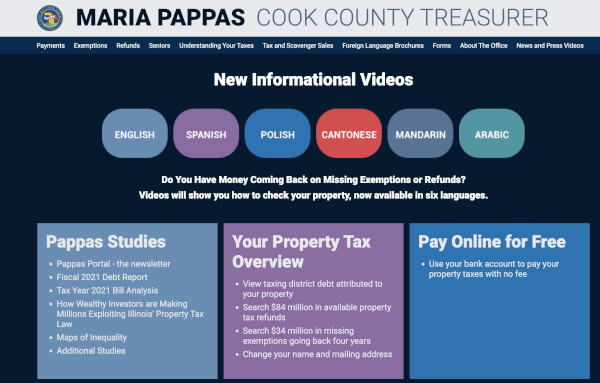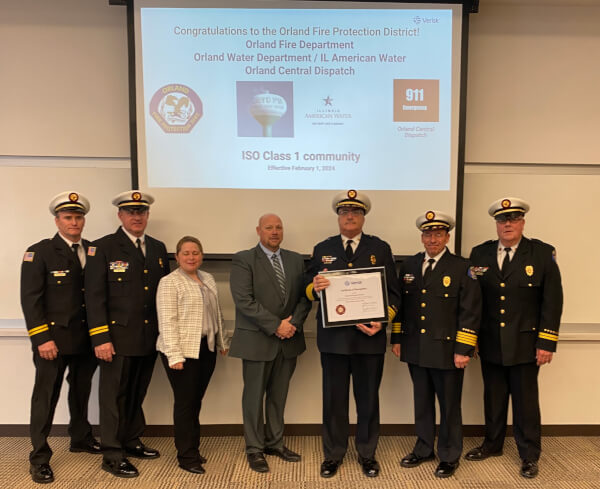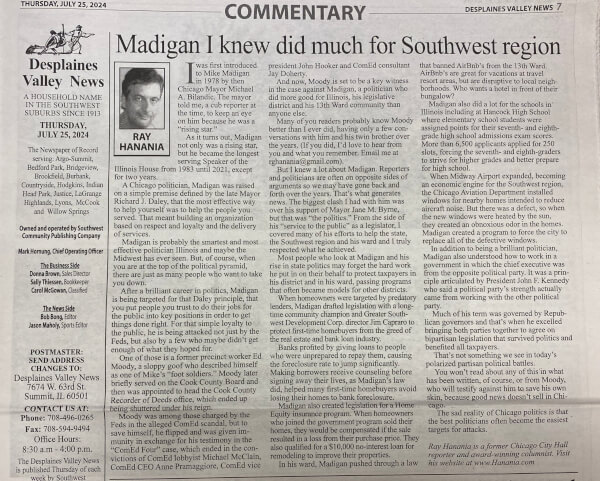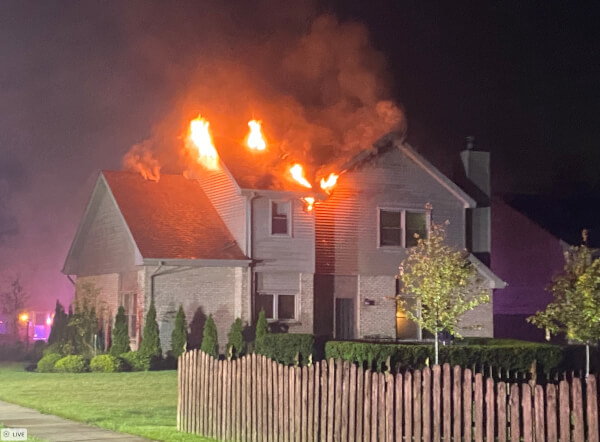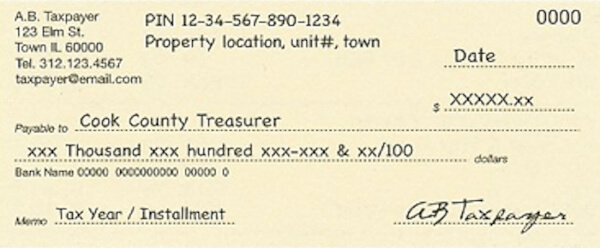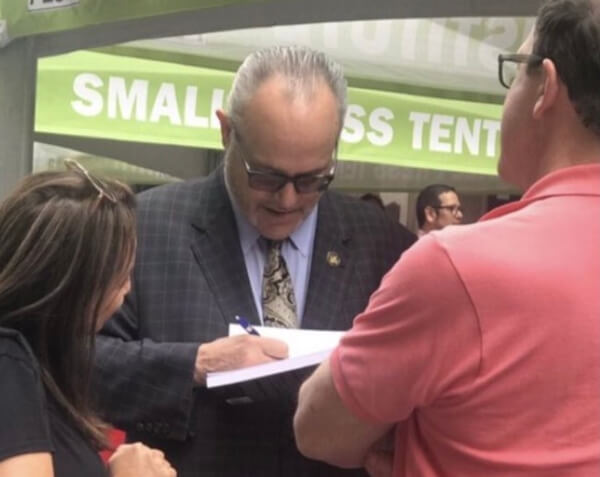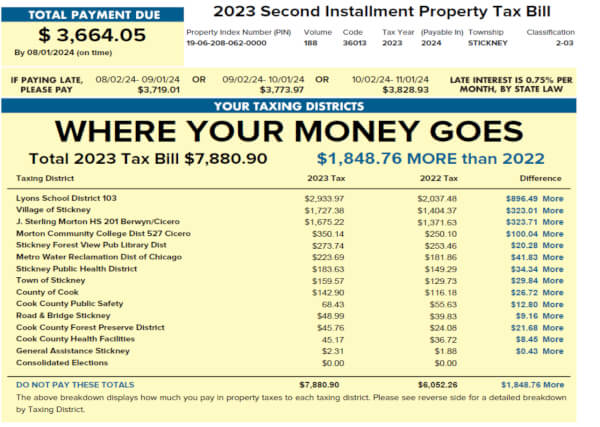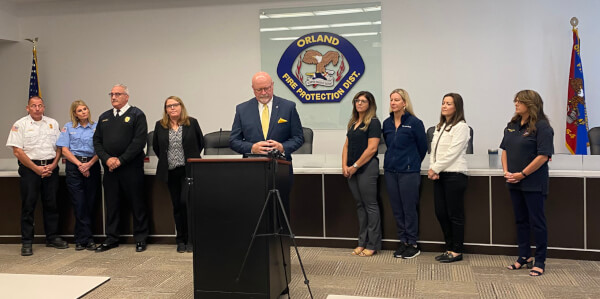![]()
Senior freeze exemptions help prevent huge spikes in property tax bills
By Maria Pappas
Many senior citizens on fixed incomes face the challenge of managing their property taxes. They may be eligible for a tax break known as the “Senior Freeze” Exemption.
My website, cookcountytreasurer.com, explains the eligibility requirements and can walk you through the application process. The website is a valuable resource that tells you when you should apply and what documents you will need to verify eligibility.
Applicants must meet certain age and income requirements to qualify for the “Senior Freeze” Exemption. Seniors aged 65 and older with an annual household income of $65,000 or less are eligible. You must have owned and occupied the home on Jan. 1 of the tax year in question.
The full name of the benefit is the Low-Income Senior Citizens Assessment Freeze Homestead Exemption, though it is commonly called the “Senior Freeze” Exemption for short.

The exemption “freezes” the equalized assessed valuation (EAV) of the property the year that the senior citizen qualifies for the benefit. Unlike other exemptions, you must re-apply for the “Senior Freeze” Exemption every year since income from Social Security or other sources may change from year to year.
The “Senior Freeze” Exemption provides a measure of relief that is designed to safeguard older homeowners from huge spikes in tax bills due to increases in assessed valuations.
Applicants should know, however, that tax bills may still increase if the tax rates rise or if improvements are added that increase the value of their property. Applicants who meet age and income eligibility requirements should expect to provide documentation that shows proof of age, income, and property ownership.
Visit cookcountytreasurer.com to learn how you can apply online and track the status of your application. Go to the purple box labeled “Your Property Tax Overview.” Use your property address or 14-digit Property Index Number (PIN) to search. If results show that you are not receiving a “Senior Freeze” Exemption and you are entitled to one, click on the link that says, “Apply for a missing exemption.”
If you turned 65 in 2022, have household income of $65,000 and occupied a home you own on Jan. 1, 2023, you are likely eligible to apply for a “Senior Freeze” Exemption for the first time.
Typically, you can apply for refunds for missed exemptions going back four years. However, due to the pandemic, some Second Installment due dates were delayed. Right now you can claim missed “Senior Freeze” Exemptions for five tax years: 2022, 2021, 2020, 2019 and 2018. You should allow at least six weeks for your application to be processed.
Dollar amounts of refunds typically vary depending on tax rates and other factors. Each year that a “Senior Freeze” Exemption was missed could mean a refund of several hundred dollars or more.

